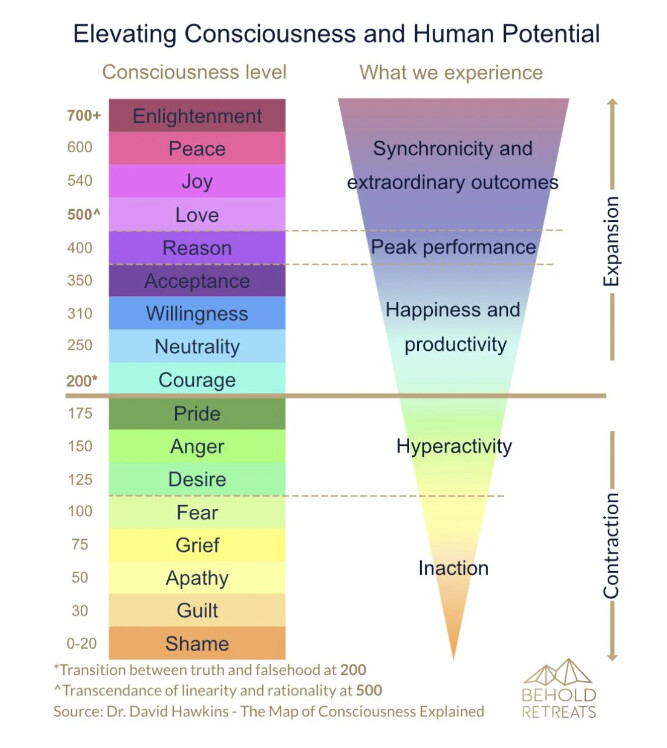In my view, here is the more valuable question:
This is useful and is going to lead to a sharing of resources, encouragement, and helpful ideas; so I’m going to focus on this.
Actually, the overall question reminds me of RPG video games. There are different character “types”, and each one has its own particular strengths, limitations, and specializations/special abilities. Each type also has its own particular training, development, and evolutionary possibilities.
Here’s a good point:
Hmm…in a way, the image shared by @Prioritas gets to the heart of the matter.
Remember: Those levels of consciousness are equally available to all minds. Everyone has their own versions and pathways of Apathy, Pride, Love, and so on. The specific details of someone else’s winning strategy may not be what will work best for you. So, in general, we’re going to look for Principles of Success, and then we’re going to translate them into the terms that are most appropriate for who we are.
Also, by placing these states of consciousness into a simple ladder configuration and referring to them as “Levels”, Hawkins plays into our insecurities and our simplistic notions of “Better versus Worse”. Obviously you want to be at the “top” of the ladder, right? But it’s not that simple. The “enlightenment” and transcendence at the top of the chart, can INCLUDE grief, anger, and so on. In fact, it’s the capacity to access and INCLUDE various states without being trapped in them that is one of the jewels of so-called enlightenment.
Alright, so it’s “answer a question with a question” time.
You (beautifully) write:
Here are a few questions:
-
What ideas do you find most inspiring to you?
-
What experiences do you find inspiring?
-
What music, people, friendships, art, geographical locations seem to reach into you, connect to you, and evoke feeling (and meaning)?
Approach these as Experiential Questions more than as Analytical questions. In other words, ask these questions with your actions, and find the responses to the questions through what you feel and experience.
If you do this, then responding to them will take 10 to 30 years. And those will be 10 to 30 awesome years. (In contrast, “Answering” them analytically may take less than 10 minutes. Possibly 10 impatient, rushed, and frustrated minutes.  )
)
In the process of responding to them experientially, we find many things that we are seeking. And we find ourselves in many interesting places.


 )
)